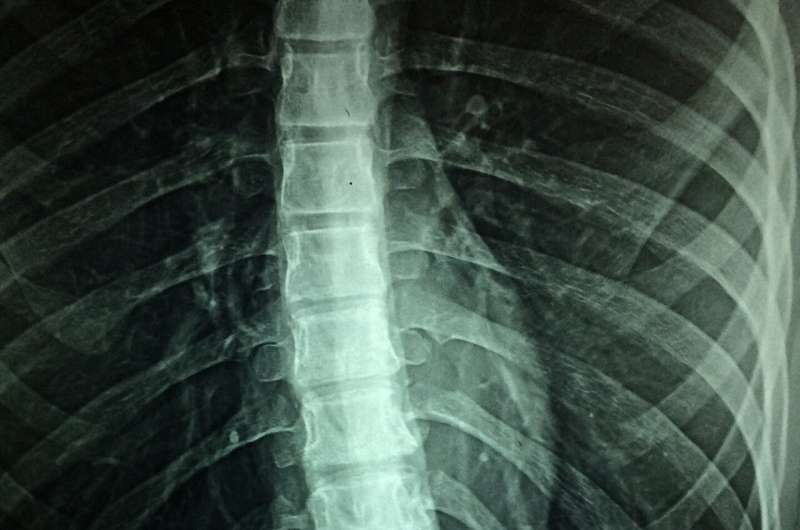This article has been reviewed according to Science X's editorial process and policies. Editors have highlighted the following attributes while ensuring the content's credibility:
fact-checked
peer-reviewed publication
trusted source
proofread
Study shows spinal cord injury causes acute and systemic muscle wasting: Severity depends on location of the injury

Acute spinal cord injury (SCI) patients lose body weight and muscle mass, despite being on a high-calorie diet while in the intensive care unit. Their muscle wasting is substantial and extends beyond what can explained by inactivity or denervation (loss of nerve supply) alone.
Research led by The Ohio State University Wexner Medical Center and College of Medicine published in the journal Science Translational Medicine sheds new light and decodes early muscle loss after SCI to provide an unprecedented first understanding that muscle wasting is:
- rapid and severe
- a systemic phenomenon
- glucocorticoid dependent
Researchers found that the severity of this SCI-induced systemic muscle wasting depends on location of the spinal cord injury (lesion level). More precisely, it depends on whether the adrenal gland becomes denervated after high thoracic injury (above T5), or not (after low thoracic injury).
These findings have direct clinical ramifications.
"Patients with a low body mass index (BMI) have a much higher risk [of dying] shortly after suffering a spinal cord injury. With a better understanding of this muscle wasting and aggravated weight loss, we hope to explore new ways to reduce deaths in this fragile patient population," said Jan Schwab, MD, PHD, the William E. Hunt & Charlotte M. Curtis Chair and a professor of neurology and neurosciences at the Ohio State College of Medicine.
Researchers found that systemic muscle loss is worsened when the adrenal glands become deprived of central nervous system control resulting in a skewed hormonal (endocrine) tone. When this happens, hypercortisolism (excess cortisol release) often develops after the spinal cord injury.
"This hypercortisolism then acts on specific receptors in the muscle of the entire body to cause muscle loss. Interfering with this pathway could rescue muscle tissue and improve the response to rehabilitation," said first author Markus Harrigan, a member of Schwab's research lab and Ohio State's dual-degree MD-Ph.D. Medical Scientist Training Program as well as a Ruth L. Kirschstein Individual NIH-Research Fellow.
This research also provides new insights on how to maintain muscle integrity while reducing the risk of developing higher degree pressure ulcers that often plague these patients, Harrigan said. The study builds on previous Ohio State research into the effects of SCI on the immune system that undermine immune system function, enhance infection susceptibility and contribute to infectious complications.
"We now start to understand how an injury of the spinal cord leads to spinal cord disease affecting the entire body," said Schwab, who is also medical director of the Belford Center for Spinal Cord Injury and a Scholar of the Chronic Brain Injury Initiative at Ohio State. "Our future research will search for ways to block these complications and protect the adrenal gland from receiving 'false' autonomic nervous system information originating from the spinal cord below the lesion site."
Ohio State scientists collaborated with researchers in Berlin, Germany, along with Nationwide Children's Hospital in Columbus, Ohio, and the University of Missouri.
More information: Markus Harrigan et al, Lesion-level dependent systemic muscle wasting after spinal cord injury is mediated by glucocorticoid signaling in mice, Science Translational Medicine (2023). DOI: 10.1126/scitranslmed.adh2156. www.science.org/doi/10.1126/scitranslmed.adh2156




















